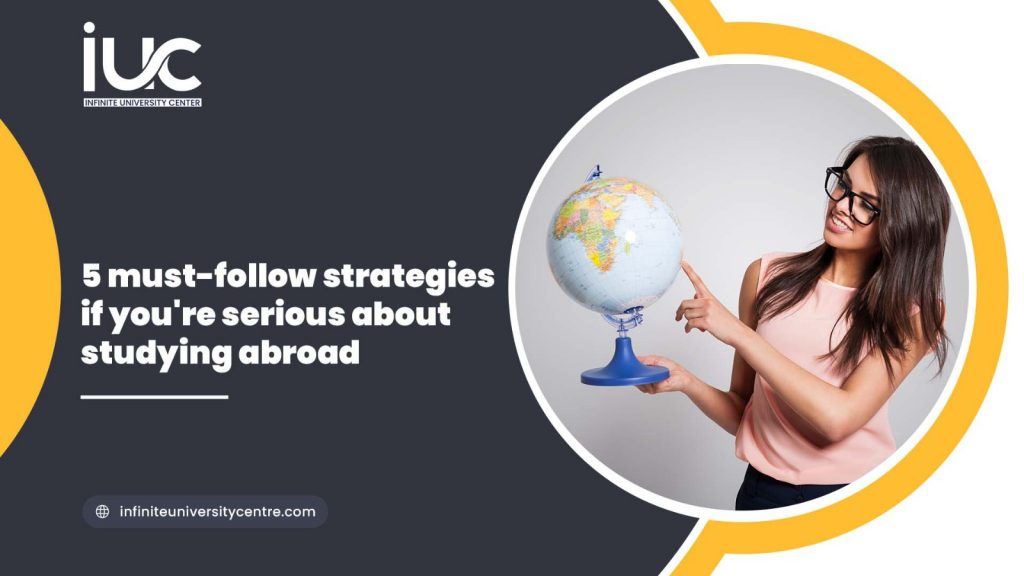Studying abroad offers transformative experiences that extend far beyond traditional classroom learning. While traditional education certainly has its advantages, studying abroad provides unparalleled opportunities for personal growth, cultural exposure, and academic enrichment. As you plan your study abroad journey, it’s essential to consider a few key strategies to ensure a successful and fulfilling experience. Below, we outline five strategies for those committed to making the most of their study abroad adventure.
Choose the right study abroad destination:
Thorough research is essential for selecting the ideal study abroad destination to maximise your experience. While conducting independent research is crucial, connecting with counsellors or recruitment partners can provide valuable insights. Researching involves selecting the right country and university, considering factors such as affordability, cultural compatibility, and language requirements. These considerations are vital for ensuring a well-informed decision that aligns with your academic and personal goals.
Financial Planning:
Financial feasibility is a primary concern for anyone considering studying abroad, as it often entails a significant financial commitment. Planning a budget meticulously is crucial to managing expenses effectively. Various factors, such as tuition, living expenses, and accommodation, must be taken into account. Additionally, it’s important to remain alert about unforeseen circumstances, such as accidents or unexpected costs, that may arise.
Exploring available financial aid can help alleviate the financial burden. These resources can play a pivotal role in balancing expenses and ensuring a smoother financial journey during your time abroad.
Academic and Document Preparation:
Before and during the application process for studying abroad, it’s essential for students to prepare a comprehensive list of required documents. This proactive approach ensures a smoother application process. Documents typically include language proficiency test results, academic transcripts, letters of recommendation, a valid passport, a statement of purpose, and various other necessary paperwork. As you progress with the application, you’ll discover a detailed list of documents needed for admission. Being well-prepared with these documents streamlines the application process and increases the likelihood of a successful outcome.
Cultural and social integration:
Starting on a journey abroad for studies promises not only professional growth but also significant personal development. It’s an opportunity to immerse oneself in a new culture, cultivating understanding and appreciation for diversity on both social and cultural fronts. Embracing the local culture facilitates connections with the community and aids in adjustment to the new environment.
Efforts towards timely social and cultural integration enhance the study abroad experience, making it more enriching and enjoyable. By embracing the differences and actively engaging with the local culture, students can maximise the benefits of their overseas education adventure.
Health and safety measures:
Your health and safety are essential considerations while studying abroad, necessitating proactive measures. Prioritise researching healthcare options in your study location to avoid scrambling during emergencies. Securing international health insurance coverage is a crucial first step. Familiarise yourself with emergency services and contact information. Additionally, adhere to safety guidelines provided by your host institution and the country you’re studying in to ensure a smooth and secure experience.

